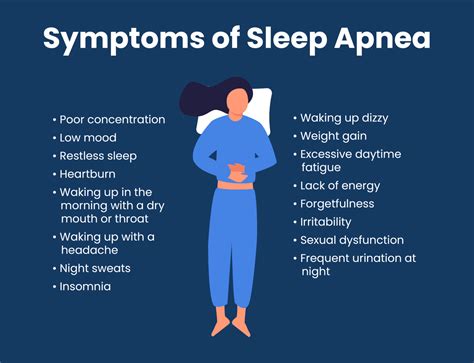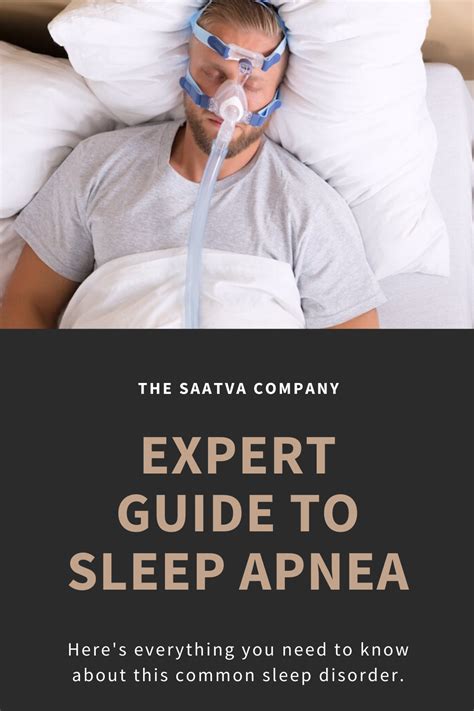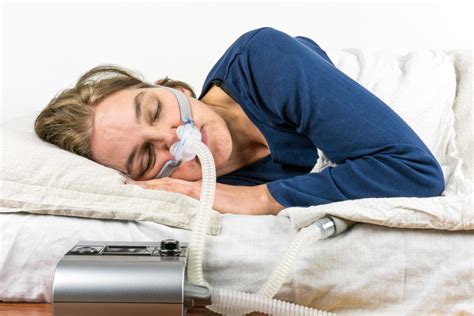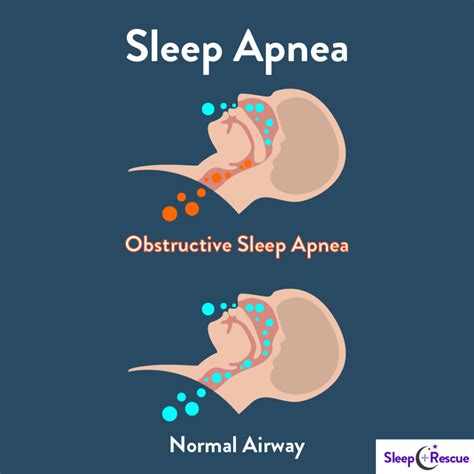Intro
Improve sleep quality with 7 sleep apnea self-care tips, including lifestyle changes, breathing exercises, and stress management, to alleviate symptoms and promote better rest, reducing sleep disorders and related health issues.
Sleep apnea is a serious sleep disorder that affects millions of people worldwide, causing breathing interruptions during sleep. These interruptions can occur multiple times throughout the night, leading to poor sleep quality, fatigue, and increased risk of various health problems. Managing sleep apnea requires a combination of medical treatment and self-care strategies. In this article, we will explore the importance of self-care in managing sleep apnea and provide 7 sleep apnea self-care tips to help you improve your sleep quality and overall health.
Sleep apnea can have significant consequences on daily life, including decreased productivity, mood disturbances, and increased risk of accidents and injuries. Furthermore, untreated sleep apnea can lead to more severe health problems, such as high blood pressure, heart disease, and stroke. Therefore, it is essential to take an active role in managing sleep apnea through self-care and lifestyle modifications. By making simple changes to your daily habits and routines, you can improve your sleep quality, reduce symptoms, and enhance your overall well-being.
Effective management of sleep apnea requires a comprehensive approach that incorporates medical treatment, lifestyle modifications, and self-care strategies. While medical treatment, such as continuous positive airway pressure (CPAP) therapy, is often necessary to manage sleep apnea, self-care plays a critical role in improving sleep quality, reducing symptoms, and enhancing overall health. Self-care involves making conscious choices about your lifestyle, habits, and behaviors to promote healthy sleep, manage stress, and maintain a healthy weight. By incorporating self-care strategies into your daily routine, you can take control of your sleep apnea management and improve your overall quality of life.
Understanding Sleep Apnea

Causes and Symptoms of Sleep Apnea
Sleep apnea can be caused by a combination of factors, including obesity, age, family history, and certain medical conditions, such as high blood pressure and diabetes. Symptoms of sleep apnea may include loud snoring, pauses in breathing during sleep, morning headaches, and difficulty staying asleep. If left untreated, sleep apnea can lead to more severe health problems, such as heart disease, stroke, and high blood pressure. Recognizing the causes and symptoms of sleep apnea is crucial for seeking medical attention and developing an effective treatment plan.7 Sleep Apnea Self-Care Tips

- Maintain a Healthy Weight: Excess weight is a significant risk factor for sleep apnea, as it can cause fat to accumulate in the throat, narrowing the airway and increasing the risk of breathing interruptions. Losing weight through a combination of diet and exercise can help reduce symptoms and improve sleep quality.
- Exercise Regularly: Regular exercise can help improve sleep quality, reduce stress, and enhance overall health. Aim for at least 30 minutes of moderate-intensity exercise per day, such as brisk walking, cycling, or swimming.
- Avoid Alcohol and Sedatives: Alcohol and sedatives can relax the muscles in the throat, increasing the risk of breathing interruptions during sleep. Avoid consuming these substances, especially in the hours leading up to bedtime.
- Quit Smoking: Smoking can increase the risk of sleep apnea, as it can cause inflammation and narrowing of the airway. Quitting smoking can help reduce symptoms and improve overall health.
- Sleep on Your Side: Sleeping on your side can help reduce the risk of breathing interruptions during sleep, as it can help keep the airway open. Use a body pillow or a wedge pillow to support your body and maintain a comfortable sleeping position.
- Use a Humidifier: Dry air can irritate the throat and nasal passages, increasing the risk of breathing interruptions during sleep. Using a humidifier can help maintain a healthy moisture level in the air, reducing congestion and promoting healthy sleep.
- Practice Stress-Reducing Techniques: Stress can exacerbate sleep apnea symptoms, as it can cause tension and anxiety that can disrupt sleep. Practice stress-reducing techniques, such as meditation, deep breathing, or yoga, to help manage stress and promote relaxation.
Benefits of Self-Care for Sleep Apnea

- Improved sleep quality: Self-care strategies, such as maintaining a healthy weight, exercising regularly, and avoiding alcohol and sedatives, can help improve sleep quality and reduce symptoms.
- Reduced symptoms: Self-care strategies, such as quitting smoking and using a humidifier, can help reduce symptoms and improve overall health.
- Enhanced overall health: Self-care strategies, such as practicing stress-reducing techniques and maintaining a healthy diet, can help enhance overall health and reduce the risk of chronic diseases.
- Increased energy: Self-care strategies, such as exercising regularly and getting enough sleep, can help increase energy levels and improve overall well-being.
Common Challenges and Solutions
Despite the benefits of self-care for sleep apnea, many individuals may face challenges in incorporating these strategies into their daily routine. Some common challenges include:- Lack of motivation: Finding it difficult to stay motivated and engaged in self-care activities.
- Limited time: Having limited time to devote to self-care activities.
- Lack of support: Feeling isolated and lacking support from family and friends.
To overcome these challenges, consider the following solutions:
- Start small: Begin with small, achievable goals, such as taking a short walk each day or practicing deep breathing exercises for a few minutes each morning.
- Find a support group: Join a support group or online community to connect with others who are managing sleep apnea and share tips and advice.
- Prioritize self-care: Make self-care a priority by scheduling it into your daily routine and treating it as a non-negotiable part of your daily activities.
Conclusion and Next Steps

What is sleep apnea, and how is it diagnosed?
+Sleep apnea is a sleep disorder characterized by repeated breathing interruptions during sleep. It is typically diagnosed through a combination of medical history, physical examination, and sleep studies, such as polysomnography (PSG) or home sleep apnea testing (HSAT).
What are the different types of sleep apnea, and how are they treated?
+There are three main types of sleep apnea: obstructive sleep apnea (OSA), central sleep apnea (CSA), and mixed sleep apnea (MSA). Treatment for sleep apnea typically involves a combination of lifestyle modifications, such as weight loss and exercise, and medical treatment, such as continuous positive airway pressure (CPAP) therapy or oral appliances.
How can I manage sleep apnea and improve my overall health?
+Managing sleep apnea and improving overall health involves a combination of lifestyle modifications, such as maintaining a healthy weight, exercising regularly, and avoiding alcohol and sedatives, as well as medical treatment and self-care strategies, such as stress-reducing techniques and getting enough sleep.
We hope this article has provided you with valuable insights and practical tips for managing sleep apnea and improving your overall health. If you have any further questions or concerns, please do not hesitate to reach out to your healthcare provider or a qualified healthcare professional. Remember to prioritize your health and take control of your sleep apnea management to achieve a better quality of life. Share this article with friends and family who may be struggling with sleep apnea, and encourage them to take the first step towards a healthier, happier life.
